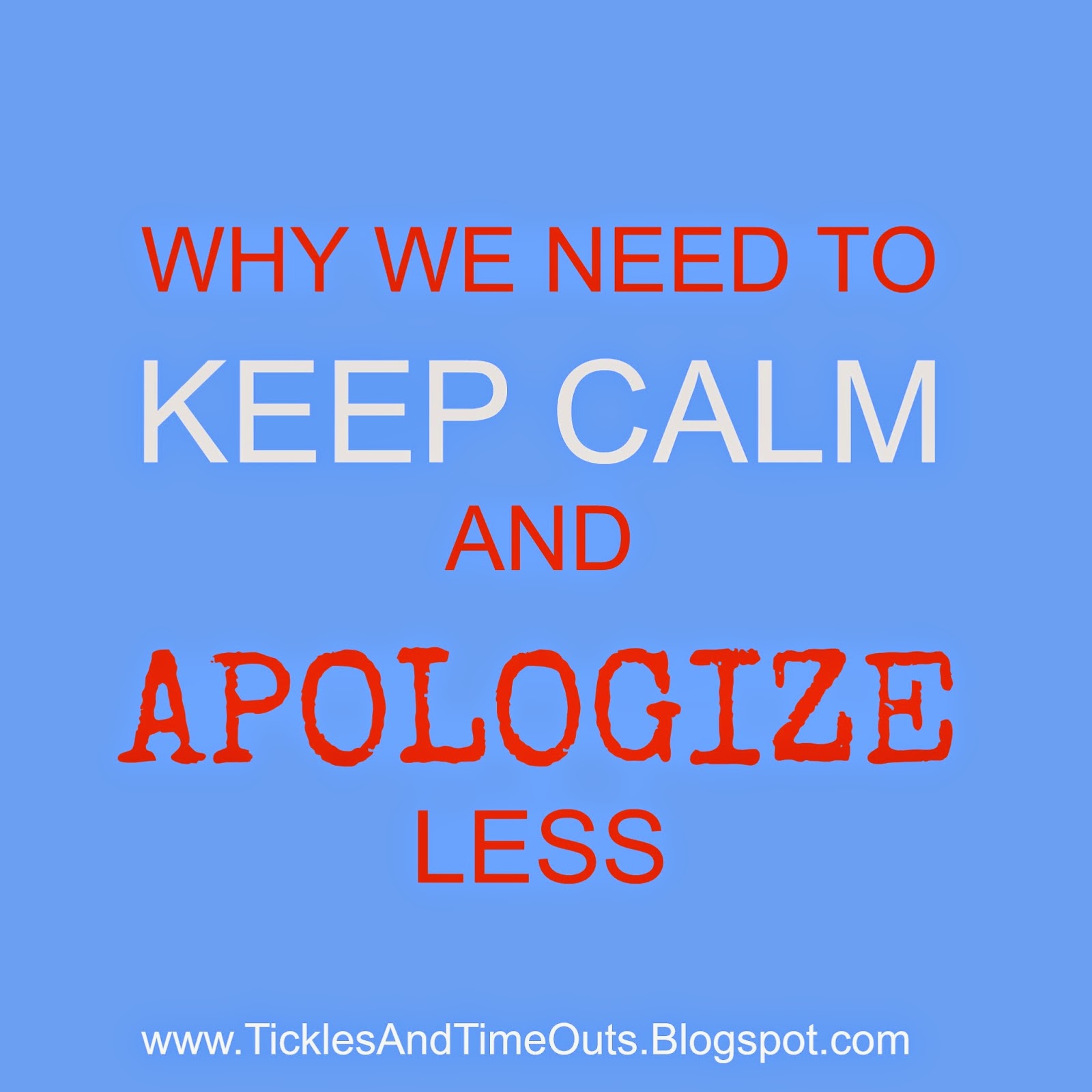Why do people apologize?
Have you ever shared a problem with someone and they begin saying "I'm soooo sorry" and it makes you feel even worse? Aside from a death of a loved one (or something really traumatic), do people really want to hear an apology when something doesn't go as planned?
Do they want to feel like a victim or do they want to feel like someone that can overcome obstacles? While it's good to be sympathetic and kind, isn't it often more appropriate to just help them look on the bright side?
Honestly, I believe that apologies should be saved for sincerity, for the times when we really hurt someone. If we're constantly apologizing for every little thing, what happens when we make really big mistakes?
Will people think we are sincere? Also, if we apologize all the time, why are we doing the things we are sorry for ALL the time over and over again? Are you being perceived as a people pleaser that doesn't have boundaries?
I'm trying to really think before apologizing myself these days. I want to avoid apologizing prematurely. I find that I say "I didn't really mean to say it that way" or "I shouldn't say ____"
Well, ya know what if you shouldn't...then don't!!
Throughout my 37 38 years of life...I have always thought...
But now I'm not so sure.
In the past 2 weeks a few things have happened in the public eye that have really made me think differently. First, Bill Carroll, the head coach of the Seattle Seahawks was scrutinized for 'losing the super bowl' by making the 'worst call in Super Bowl history'. I don't know a whole lot about football but I do know a lot about making mistakes (because I make them a lot). I love the way Bill Carroll handled the situation under such scrutiny. When interviewed, he said,
"I started by getting my mind right to give people perspective so that we can move ahead." I think we could all learn from that when we are wrong....taking the time to really think about what we did and why we did it after we make a mistake (especially if it's a big one). He did not say he was sorry for the incident-he said that he made the best decision he could with what he had. He took accountability without looking like a failure.
I like that.
I like that.
Recently, another thing happened in my local area that really made me scratch my head. Our local weather forecasters predicted The Blizzard of 2015 (which barely left a trace of snow across most of the Philadelphia/New York/New Jersey area). Szatkowski, a New York weather forecaster was one of these people that made a 'bad call'. He might be a familiar name to some in the Tri-State area because he was described as one of the "heroes" of Superstorm Sandy for getting predictions about that storm's severity right, and for broadcasting them loudly. He issued a statement after getting this storm wrong saying,
"My deepest apologies to many key decision makers and so many members of the general public," he said via Twitter early Tuesday morning. "You made a lot of tough decisions expecting us to get it right, and we didn't. Once again, I'm sorry."
While it's good that he took accountability, is he losing his credibility?
While I was researching ideas for this topic, I came across this funny post...31 Normal Things Parents Should NEVER have to Apologize For. I like this post because it keeps things real. Just last night someone apologized to my 3 year old daughter because she was jealous when she didn't get a birthday present (it was her sister's birthday). People often apologize when their kid acts up in public. Maybe they aren't sure if they did the right thing so they just apologize to cover their bases? Maybe they didn't handle the situation well so they really are sorry? Maybe they feel responsible for someone elses' behavior? Whatever the reason is, is it necessary?
Here's the thing.
Coaches make wrong calls because they are human.
Meteorologists make bad forecasts because we can't control mother nature.
Parents make bad choices because parenting is really freaking hard.
Don't get me wrong, I'm not making excuses for any bad behaviors. However, I think we are often being unrealistic about our expectations from ourselves and others. There are times when we make a really crappy decision that hurts someone close to us and we need to make amends, Michael Hyatt talks about this in his podcast How to Botch an Apology There are times when we wish we would have made a different decision but we know that we made the best decision we could with the information and resources we had available to us.
Bottom line...let's be honest with ourselves (and others) about our actions and how our actions affect other people.




.jpg)
No comments:
Post a Comment